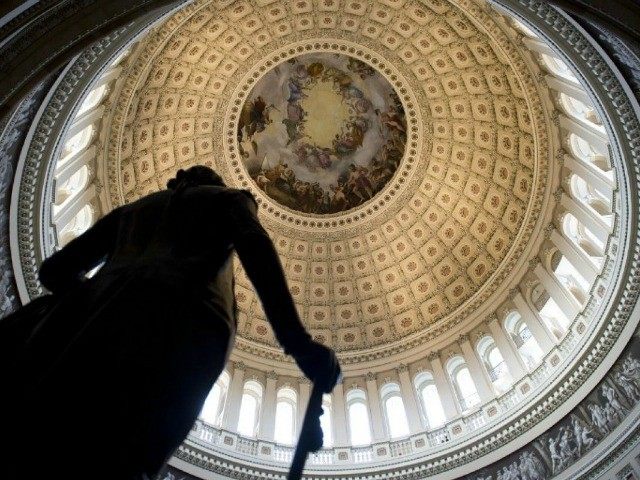In the difficult winter of 1777, General George Washington’s army was suffering from bitter cold, a lack of supplies and the obvious superiority of British forces.
Many of his soldiers were in agony from severe frostbite, with feet and legs often frozen until they became black. Mandatory amputation of the injured appendages was widespread, disease was rampant and troop morale was low.
With his men under distress – dying at the rate of twelve per day – and disturbing sights of crimson mixed with snow, General Washington sought divine assistance.
With the weight of the world on his shoulders, he kneeled in the ice at Valley Forge. Hidden away in a grove of trees, his bended knees met the cold, hard ground.
Quaker Isaac Potts was riding his horse in the forest when he came upon Washington in deep conversation with God. It was at that moment when he witnessed the general interceding for his beloved country.
Potts later revealed the experience to his pastor, Nathaniel Randolph Snowden, an ordained Presbyterian minister, who then recorded the eyewitness account in his diary.
In detail, Snowden described the account of Potts: “In that woods pointing to a close in view, I heard a plaintive sound as, of a man at prayer. I tied my horse to a sapling and went quietly into the woods and to my astonishment I saw the great George Washington on his knees alone, with his sword on one side and his cocked hat on the other. He was at Prayer to the God of the Armies, beseeching to interpose with his Divine aid, as it was ye Crisis, and the cause of the country, of humanity and of the world.”
“Such a prayer I never heard from the lips of man. I left him alone praying,” reported an awestricken Potts.
As American history unfolded and days turned into weeks, it became apparent that God had answered General Washington’s prayer, coming to our young country’s assistance in the form of another defender of liberty – the nation of France.
Emboldened after a Colonial victory at the Battle of Saratoga in October of 1777, the reluctant French formally entered the war against the British, becoming the first country to officially recognize our nation’s declaration of independence.
It was then, on May 6, 1778, after hearing of French intervention, that General Washington called a day of thanksgiving for his beleaguered army, announcing to his troops, “It having pleased the Almighty Ruler of the universe to defend the cause of the United American States, and finally to raise up a powerful friend among the princes of earth, to establish our liberty and independence upon a lasting foundation, it becomes us to set apart a day for gratefully acknowledging the divine goodness, and celebrating the important event, which we owe to His divine interposition.”
The rest, as they say, is history.
Twelve years after despair led him to kneel in prayer at Valley Forge, newly-elected President Washington officially proclaimed November 26, 1789, as Thanksgiving Day for our new Republic.
He had not forgotten the hopelessness he once felt, the courageous struggles of his men or the answered prayers of an earlier time.
In his Thanksgiving Day Proclamation of 1789, he asked the people of the United States to observe “a day of public thanksgiving and prayer” so that they might acknowledge “with grateful hearts the many signal favors of Almighty God, especially by affording them an opportunity peaceably to establish a form of government for their safety and happiness.”
He likewise reminded the country that “it is the duty of all nations to acknowledge the providence of Almighty God, to obey His will, to be grateful for His benefits, and humbly to implore His protection and favor.” He specifically assigned the day “to be devoted by the People of these States to the service of that great and glorious Being, who is the beneficent Author of all the good that was, that is, or that will be . . .”
Despite challenging and uncertain times, Washington – like the overwhelming majority of our founding fathers – held strongly to his religious faith, with prayer representing an essential component of his distinguished life.
He had a clear understanding from whence his strength and hope arose.
This week, let us learn from the faithfulness of our first President by giving thanks to an almighty God for his continued blessings of liberty.
Let us also pray for continued guidance and assistance in our worldly endeavors, being mindful of the great religious faith that has been with us and kept us from the very beginning.
Moreover, let us thank God for our families, friends and neighbors.
But perhaps more importantly, let us recall that invaluable lesson imparted by the father of our country.
In the most troubling of times, when it seems despair has triumphed over hope and darkness has smothered the soul beyond salvation, a heavenly answer is always waiting to be found.
Whenever bended knees meet the cold, hard ground.

COMMENTS
Please let us know if you're having issues with commenting.